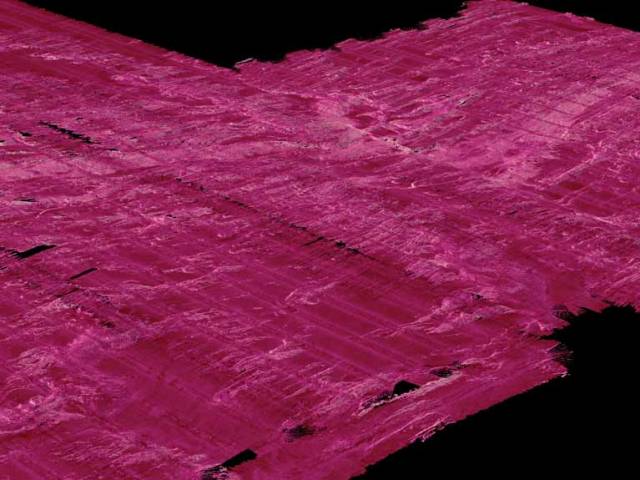Combined impacts of sea-level rise, intensification of maritime transport, depletion of coastal ecosystems and deep-sea mining are the theme of a new exhibition planned for the Italian city of Venice which aims to change the conversation about the ocean environment writes Lorna Siggins.
A projected image of Venice in the year 2050 if the global community lives up to the 2016 Paris Agreement forms part of the exhibition, opening in the Spring.
There are predictions that combined sea-level rise and land subsidence will flood the city built on 118 small islands entirely by the year 2100.
Effects of overfishing, bottom trawling, oil exploration and extraction, migration, changing ocean circulations, militarisation and melting ice are also traced by the research project, Territorial Agency, which is hosting the exhibition.
Bathymetry and fishing data from the “black Atlantic”, as in mid-Atlantic, the impact of shipping activity and oil licensing, and a multibeam sonar sounding of Reykjanes Ridge in the Atlantic are among images commissioned for the project.
It also draws on multi-beam sonar data for a view of the Pacific ocean floor, off the coast of Hawaii.
Other images include scenarios of sea-level rise overlaid on the rapid depletion of the coastal ecosystems of the Mississippi delta in the USA, the impact of rapid urbanisation in China on the Yangtze River plume near Shanghai, and fishing and trans-shipment data near the Nazca-Desventuradas marine park off of the coast of Chile.
Territorial Agency was founded by Ann-Sofi Rönnskog and John Palmesino as an independent organisation. It states that it combines “architecture, spatial analysis, advocacy and action” to influence change in the inhabited environment.
The project was informed and “catalysed” by sea-level rise, as the most visible sign of climate change, but investigates the changes in world oceans during the current geological era known as the Anthropocene.
It assesses latest scientific knowledge, based on a consensus that less than 20 per cent of ocean floors have been mapped, to emphasise the critical role of oceans in the planet’s survival.
“The oceans are changing very fast, yet knowledge of them is moving slowly and is enveloped in long-established forms of cultural separation and distinction between human activities at land and at sea,” they state, arguing that “this division needs to be rethought to address the urgent and vast transformations that the seas are undergoing”.
Oceans in Transformation, as the large scale multi-media exhibition is called,“rearranges the maritime space as a stage for human violence, empire and colonial history”.
The organisers will host parallel discussions with key players in environmental conversations and research, including scientists, artists, governmental and society groups, policymakers and conservationists.
The research project is Oceans in Transformation, is led by the architecture team "Territorial Agency’" The exhibition will take place at Ocean Space, Venice, from March 2020, and it is organised and commissioned by TBA21-Academy.
































































